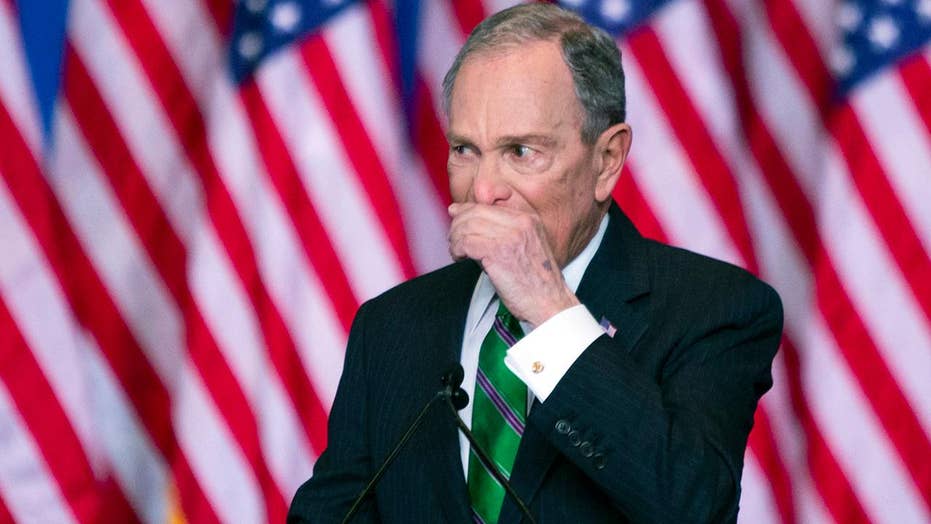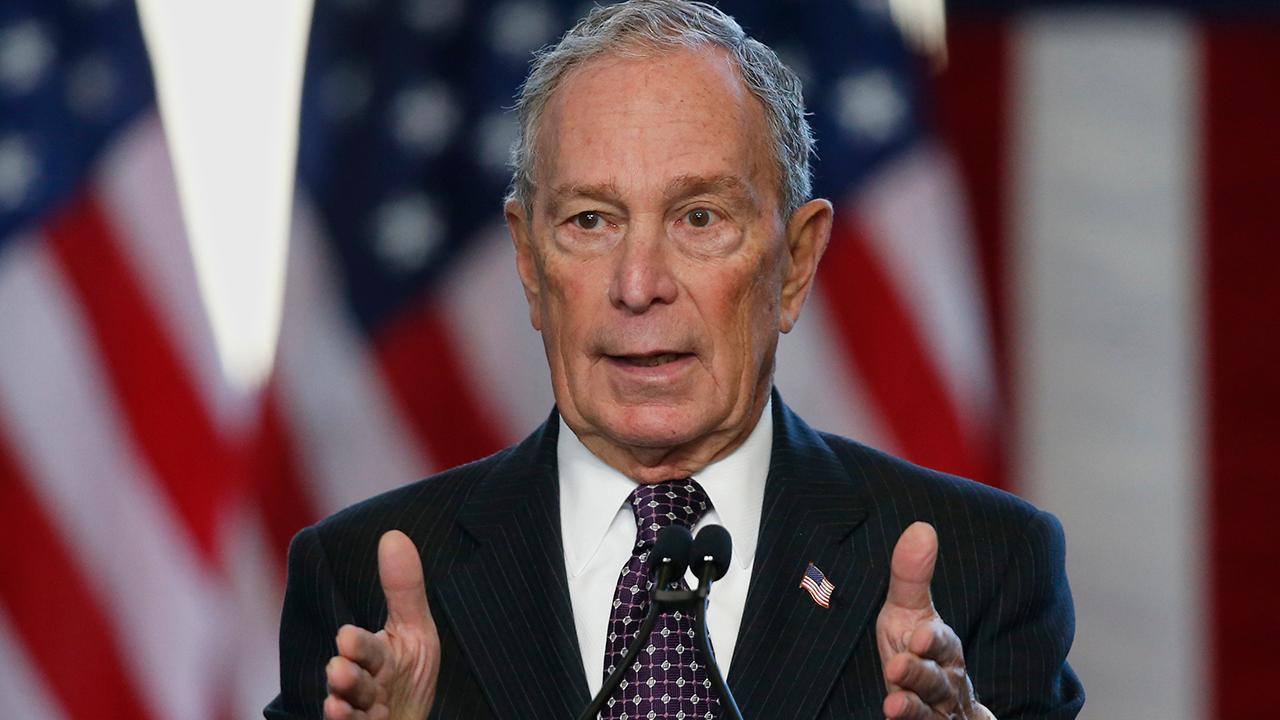The phrase "nigga vote Mike Bloomberg" has sparked significant controversy and discussion in recent years, bringing attention to issues of race, politics, and campaign strategies in American elections. This article aims to provide an in-depth analysis of the context, implications, and impact of this phrase on public discourse. Understanding its origins and significance is crucial for anyone interested in the intersection of race and politics in the United States.
The use of racially charged language in political campaigns is not new, but the specific instance of "nigga vote Mike Bloomberg" highlights the complexities of modern political communication. It raises questions about the boundaries of free speech, the role of race in voting patterns, and the responsibilities of candidates in shaping their messages.
In this article, we will explore the historical context, the controversy surrounding the phrase, its implications for political discourse, and the broader societal issues it reflects. Whether you are a political enthusiast, a student of social studies, or simply curious about the topic, this article aims to provide a balanced and informative perspective.
Read also:Jenna Ortega Rising Star In The Spotlight
Table of Contents
- Historical Context of the Phrase
- Mike Bloomberg's Campaign Strategies
- The Controversy Surrounding the Phrase
- Race and Politics in America
- Impact on Public Discourse
- Biography of Mike Bloomberg
- Legal and Ethical Implications
- Public Response and Reactions
- Future Directions in Political Communication
- Conclusion
Historical Context of the Phrase
The phrase "nigga vote Mike Bloomberg" emerged during the 2020 Democratic primaries, when Mike Bloomberg entered the presidential race. It gained traction on social media platforms, particularly Twitter, as users debated the implications of using racially charged language in political campaigns. To understand the phrase fully, it is essential to examine the historical context of race in American politics.
Racial Dynamics in American Elections
Racial dynamics have long influenced American elections, with candidates often tailoring their messages to appeal to specific demographic groups. The use of racial stereotypes or coded language has been a recurring theme in political campaigns, raising questions about the ethics of such strategies.
- Historically, political campaigns have used racial appeals to sway voters.
- The Civil Rights Movement brought attention to systemic racism in politics.
- Modern campaigns must navigate the complexities of race in a diverse electorate.
Mike Bloomberg's Campaign Strategies
Mike Bloomberg's campaign for the presidency was marked by a significant investment in advertising and a focus on appealing to a broad range of voters. His strategy included targeting minority communities, which led to the emergence of the controversial phrase.
Advertising and Messaging
Bloomberg's campaign spent heavily on television and digital advertisements, aiming to reach a diverse audience. However, the choice of language and messaging in some ads raised concerns about insensitivity and potential racial bias.
- Bloomberg's campaign focused on economic and social issues.
- The use of racially charged language in ads was criticized by many.
- Efforts to engage minority voters were met with mixed reactions.
The Controversy Surrounding the Phrase
The phrase "nigga vote Mike Bloomberg" became a lightning rod for controversy, sparking debates about free speech, racial sensitivity, and the role of language in politics. Critics argued that the phrase perpetuated harmful stereotypes, while supporters claimed it was a form of satire or critique.
Free Speech vs. Racial Sensitivity
The controversy highlighted the tension between free speech and the need for racial sensitivity in public discourse. As social media amplifies voices and opinions, the responsibility to use language responsibly becomes even more critical.
Read also:Blossom Bundles Your Ultimate Guide To Floral Beauty And Beyond
- Free speech advocates defended the right to express controversial views.
- Racial sensitivity proponents argued for more responsible language use.
- The debate continues to shape discussions about political communication.
Race and Politics in America
The intersection of race and politics in America is a complex and evolving topic. The phrase "nigga vote Mike Bloomberg" reflects broader societal issues related to race, identity, and power dynamics in political campaigns.
Key Issues in Race and Politics
Several key issues dominate the discourse on race and politics, including voting rights, representation, and systemic inequality. Understanding these issues is essential for addressing the challenges posed by racially charged language in campaigns.
- Voting rights remain a contentious issue in American politics.
- Representation of minority groups in government is crucial for democracy.
- Systemic inequality continues to affect political outcomes.
Impact on Public Discourse
The emergence of the phrase "nigga vote Mike Bloomberg" had a significant impact on public discourse, influencing how people discuss race and politics. It highlighted the power of social media in shaping narratives and the importance of responsible communication in political campaigns.
Social Media's Role in Shaping Narratives
Social media platforms have transformed the way political campaigns are conducted and perceived. The rapid spread of information and opinions can amplify both positive and negative messages, making it essential for candidates to carefully consider their messaging strategies.
- Social media amplifies voices and opinions in political campaigns.
- Responsible communication is crucial for avoiding controversy.
- The impact of social media on public discourse is significant.
Biography of Mike Bloomberg
Mike Bloomberg is a prominent figure in American politics and business, known for his tenure as Mayor of New York City and his work as a philanthropist. Understanding his background provides context for his campaign strategies and the controversies surrounding them.
| Full Name | Michael Rubens Bloomberg |
|---|---|
| Birth Date | February 14, 1942 |
| Occupation | Businessman, Politician, Philanthropist |
| Political Affiliation | Democratic Party |
Key Achievements
Bloomberg's career includes significant accomplishments in both business and politics. His leadership in New York City and his philanthropic efforts have shaped his public image and influenced his campaign strategies.
- Served as Mayor of New York City from 2002 to 2013.
- Founded Bloomberg LP, a global financial data and media company.
- Engaged in philanthropy focused on public health and education.
Legal and Ethical Implications
The use of racially charged language in political campaigns raises important legal and ethical questions. While free speech is protected under the First Amendment, the ethical responsibility to avoid harm through language is a critical consideration for candidates and their campaigns.
First Amendment and Free Speech
The First Amendment guarantees the right to free speech, but it also places a moral obligation on individuals and organizations to use language responsibly. Balancing these considerations is a challenge for political campaigns in the modern era.
- Free speech is protected under the First Amendment.
- Ethical considerations require responsible language use.
- Legal implications of language use in campaigns are complex.
Public Response and Reactions
The public response to the phrase "nigga vote Mike Bloomberg" was varied, reflecting the diversity of opinions and experiences within American society. Social media played a crucial role in shaping the conversation, with users expressing a range of views on the topic.
Diverse Opinions on Social Media
Social media platforms allowed individuals to voice their opinions and engage in discussions about the phrase. The diversity of responses highlighted the complexity of the issue and the importance of open dialogue in addressing controversial topics.
- Users expressed a range of opinions on social media.
- Open dialogue is essential for addressing controversial topics.
- Diverse perspectives contribute to a richer understanding of the issue.
Future Directions in Political Communication
As political campaigns continue to evolve, the use of language and messaging will remain a critical factor in shaping public discourse. Learning from past controversies, such as the "nigga vote Mike Bloomberg" incident, can help candidates and their teams develop more effective and responsible communication strategies.
Best Practices for Political Communication
Adopting best practices in political communication can help mitigate the risk of controversy and promote constructive dialogue. These practices include careful consideration of language, sensitivity to diverse perspectives, and a commitment to ethical responsibility.
- Use language responsibly and consider its impact.
- Engage with diverse perspectives to broaden understanding.
- Commit to ethical responsibility in campaign strategies.
Conclusion
The phrase "nigga vote Mike Bloomberg" serves as a powerful reminder of the complexities of race and politics in America. By examining its historical context, the controversy it sparked, and its broader implications, we gain a deeper understanding of the challenges facing modern political campaigns. As we look to the future, adopting responsible communication practices will be essential for promoting constructive dialogue and addressing the pressing issues of our time.
Call to Action: We invite you to share your thoughts and engage in discussions about this topic. Leave a comment, share this article, and explore related content to continue learning about the intersection of race and politics in America.

